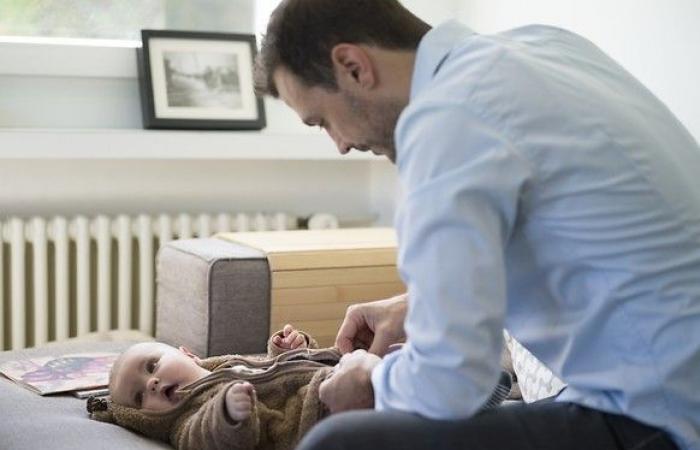Married women will receive less pension in the future if their partner dies. (symbol image)Bild: KEYSTONE
23.10.2024, 12:0223.10.2024, 12:52
Widows and widowers should in future receive a pension until the youngest child turns 25 – regardless of marital status. The Federal Council decided this on Wednesday. Currently, women receive a pension for life.
However, the current pensions of widows and widowers over 55 will continue to be paid. The Federal Council wants to eliminate unequal treatment in AHV survivors’ pensions and adapt the system to social developments, according to the statement.
Today, widows receive a pension for life, even if they have no dependent children. Widowers, on the other hand, only receive it until their youngest child comes of age. In 2022, the European Court of Human Rights (ECHR) recorded this gender inequality in a ruling.
Widowers have previously received less pension than widows. (symbol image)Bild: KEYSTONE
Also a saving effect
The new regulation is intended to provide targeted support to survivors as long as they have dependent children. The Federal Council writes that the revision takes into account both people at risk of poverty and age-related circumstances. Outside of these difficult times, it is “no longer justified to provide lifelong pensions regardless of the financial situation of the insured”.
The Federal Council sent its proposal out for consultation last December until the end of March. Opinions on the reform were divided. While the commoners welcomed the adjustments, the SP and the Greens criticized the fact that they would worsen the situation for certain groups of women. On Wednesday, the Federal Council took note of the change to the Federal Act on Old Age and Survivors’ Insurance (AHVG) and approved the message for Parliament.
Last but not least, the reform also has a savings effect. If it comes into force in 2026, it should result in a reduction in AHV expenses by around 350 million francs by 2030. 70 million of these relate to federal savings.
Who is entitled to benefits after the reform?
Entitlement of persons who become widowed after the reform comes into force:
- Survivor’s pension for parents up to the age of 25 for the youngest child, regardless of marital status and gender; Orientation beyond the age of 25 if an adult child with a disability is cared for and is entitled to AHV care credits;
- Two-year transitional pension in the event of widowhood to support surviving dependents without dependent children. This applies to married couples and divorced people who received a maintenance contribution from the deceased person.
- Support within the framework of supplementary benefits for widows and widowers who have reached the age of 58 and no longer have dependent children, provided that the death constitutes a poverty factor;
- In accident insurance: Granting of a pension also for widowers if, when their wife dies, they have children who are no longer entitled to a pension, or if they have reached the age of 45, as is currently the case for widows.
Entitlement of people who were already receiving a widow’s or widower’s pension before the reform:
- Maintaining current pensions for widows and widowers who have reached the age of 55 when it comes into force; Abolition of pensions for people under 55 years of age within two years of the change coming into effect, provided they no longer have dependent children (transitional provision);
- Retention of current pensions for widows and widowers who have reached the age of 50 when it comes into force and receive supplementary AHV and IV benefits (transitional provision).
The reform does not affect the right to a widow’s and widower’s pension from occupational pension schemes, as there is no unequal treatment between men and women in this area. The occupational pension is generally paid out until the death or remarriage of the surviving spouse.
Many pension schemes already provide survivor benefits for people who are responsible for the maintenance of a shared child. These regulatory services allow today’s life models to be taken into account. (sda/cma)
You will also be interested in:
The shoe manufacturer Künzli, which was threatened with closure due to a lack of a successor solution, has found a new owner. The entrepreneur and husband of Ems-Chemie boss Magdalena Martullo-Blocher, Roberto Martullo, buys the company.







